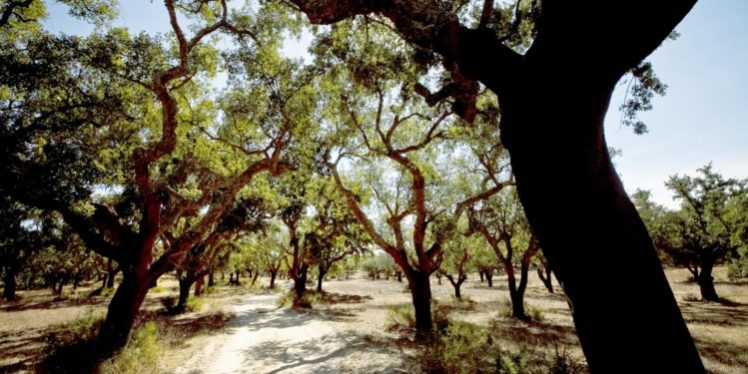Cork are made from the bark of the cork oak tree (known in Portugal as the “Sobreiro”). It takes 25 years from the germination of an acorn to the first harvest of cork bark after which the bark regenerates and can be harvested every 9 years. The beauty of this whole process is that the tree does not need to be cut down and there are some cork oak trees that are hundreds of years old and still giving up their bark every 9 years to make wine corks (and other cork products of course).
Although it has made a come back over the last few years, the cork industry has taken quite a hit from some wine producers (particularly at the lower end of the market) moving to screw caps or even synthetic corks; part of the reason for the rebound for natural cork production for wine stoppers is the fact that the fungus that used to cause cork taint (the unfortunate smell that could ruin a good bottle of wine) has pretty much been eliminated from the industry, which gives wine producers confidence in the product. Another important factor is the environmental benefits of cork: not only do cork forests provide a unique ecosystem for semi-arid areas, they also sequester (absorb) vast amounts of CO2 pumped out by industries such as aluminium, plastics and rubber (ironically those products that are used to make alternatives to natural cork stoppers).
So by choosing a wine with a natural cork stopper, not only are you avoiding the production of CO2 made by a synthetic alternative, you are also helping to remove CO2 from the atmosphere be helping the cork forests to survive. Some boffins from Lisbon (actually from the Centro de Estudos Florestais do Instituto Superior de Agronomia (ISA)) tried to work out exactly how much CO2 the growth of a single wine cork sequesters and after plenty of measuring, mathematics and head scratching, they worked out that it is 250g. Whilst removing 250g of CO2 from the atmosphere is not going to save any polar bears, when you start to add it up, it starts to turn into some serious numbers. So 1 tonne of cork production removes 73 tonnes of CO2 from the atmosphere, or put another away, each hectare of cork forest removes 14.7 tonnes of CO2 each year.
Whilst this is not an exact science, good on the Lisbon scientists for giving it a try: the really important thing to note is that in a world where we are trying to decrease the amount of toxic packaging we use and generally be nicer to our planet, cork production is a fantastic good news story. If you would like to receive any more information about cork’s environmental story or you are looking for a cork supplier, please contact us here are CorkLink.








